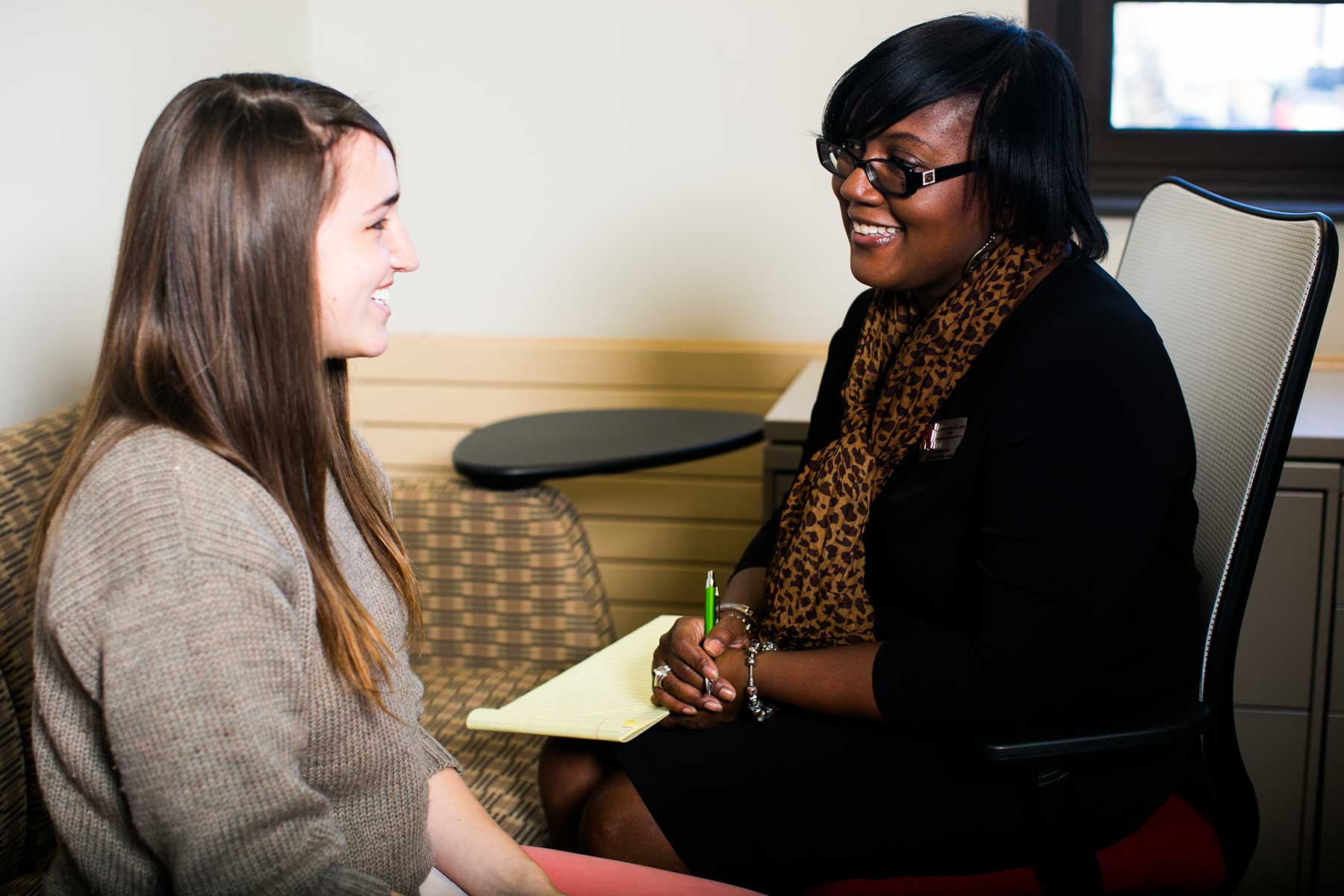
As a parent of a college student, college is an exciting time as you watch your student become more mature and independent. However, college can also be a time of stress and insecurity. Many college students overcome common college stressors by developing new coping skills. But some students may need assistance learning how to cope.
But how do you know when your student is having a “normal” reaction to stress or when something more serious needs addressed?
According to the National Alliance on Mental Illness, 75% of mental illnesses begin by age 24. A mental illness is a condition that impacts a person's thinking, feeling or mood and may affect his or her ability to relate to others and function on a daily basis.
Research shows that people who are treated in the earliest stages of a mental health concern are likely to have better outcomes. This makes awareness of the early warning signs of a mental illness critical for parents to identify. These signs include the following:
- Inability to carry out daily activities or handle daily problems and stress
- Prolonged or strong feelings of irritability or anger
- Excessive worrying or fear
- Feeling excessively sad or low
- Avoiding friends and social activities
- Confused thinking or problems concentrating and learning
- Difficulties understanding or relating to other people
- Changes in sleeping habits or feeling tired and low energy
- Changes in eating habits such as increased hunger or lack of appetite
- Difficulty perceiving reality (delusions or hallucinations)
- Abuse of substances like alcohol or drugs
- Thinking about suicide
- An intense fear of weight gain or concern with appearance
If you notice any of these early warning signs in your student, encourage them to seek help from one of the following resources on the University of Nebraska-Lincoln campus:
University Health Center Counseling and Psychological Services (CAPS)
1500 U Street
402-472-5000
http://health.unl.edu/caps
CAPS offers a variety of services to help students with: Anxiety and Depression, Drug and Alcohol Counseling, Relationship Difficulties, Eating Disorders, Sexuality Concerns, Communication Skills, Homesickness, Time Management, Learning Disabilities / ADD, Diversity Concerns, Grief and Trauma, Social Justice Issues, and Other Personal Concerns.
Individual, Confidential Counseling - Every UNL student who has paid UNL student fees receives 3 free counseling sessions. Encourage your student to call to schedule an appointment.
Support and Therapy Groups – Encourage your student to view the group listing. Most groups are free for UNL students and many allow students to “drop-in” at any time throughout the semester.
UNL Women’s Center Counseling Services
340 Nebraska Union
(402) 472-2598
http://involved.unl.edu/counseling
The UNL Women’s Center offers individual, confidential counseling for students of all genders on a wide range of personal issues. Encourage your student to call for more information or to schedule an appointment.
Counseling and School Psychology Clinic
49 Teachers College Hall
(402) 472-1152
http://cehs.unl.edu/edpsych/clinic/
Clinic therapists provide individual adult therapy to address a wide range of concerns. The Clinic serves as an education and training site for graduate students in the School and Counseling Psychology programs of the Department of Educational Psychology. Encourage your student to call for more information or to schedule an appointment.
Psychological Consultation Center (PCC)
325 Burnett Hall
(402) 472-2351
http://psychology.unl.edu/pcc/home
The Psychological Consultation Center is part of the University of Nebraska-Lincoln Clinical Psychology Training Program. PCC clinicians and staff provide psychological services to individuals and families in Lincoln and surrounding communities. Encourage your student to call for more information or to schedule an appointment.
Source: National Alliance on Mental Illness
More details at: http://go.unl.edu/uktk